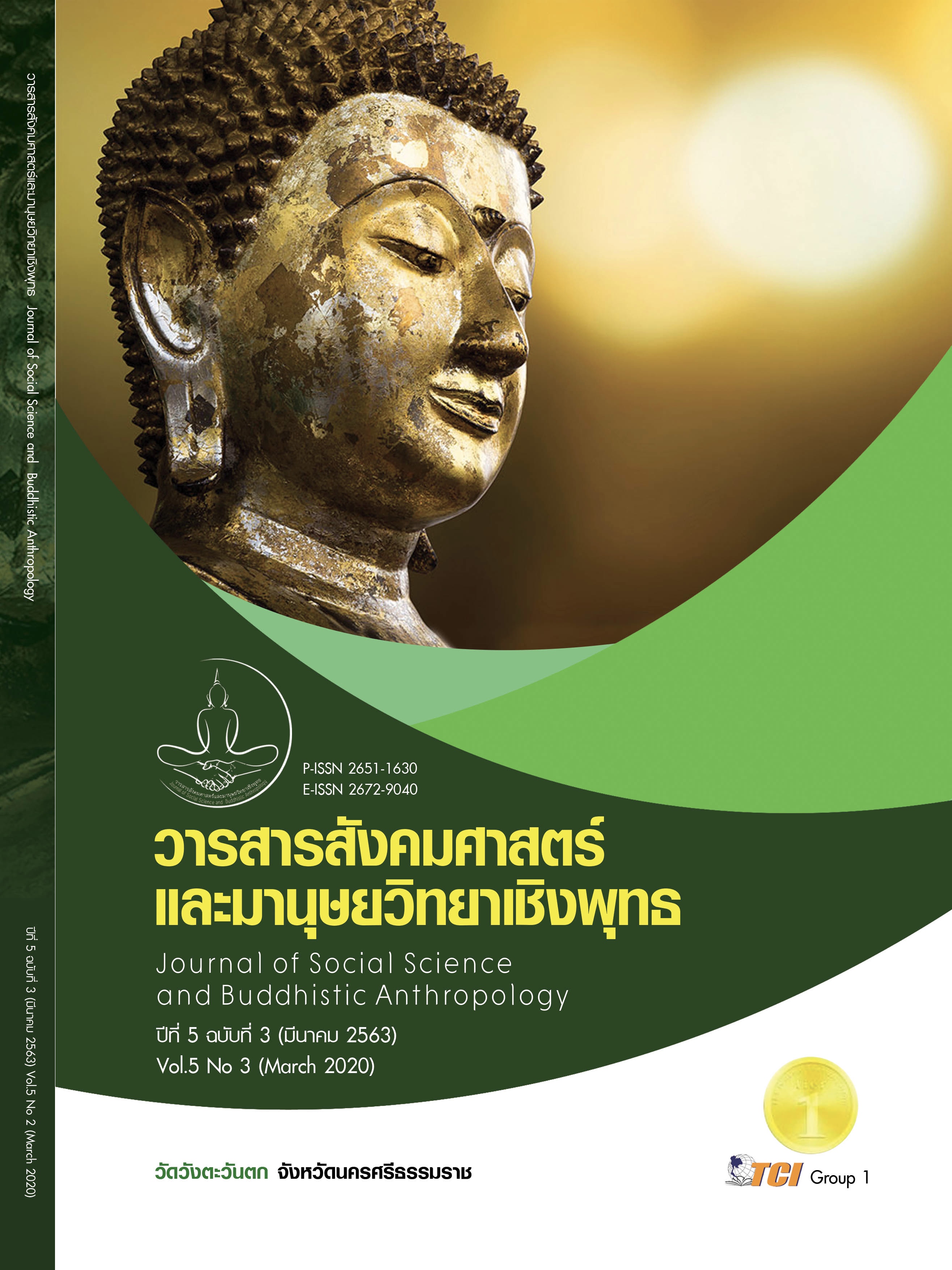GENDER AND SEXUALITIES IN THE THAI SEPA EPIC KHUN CHANG KHUN PAEN
Keywords:
gender, sexuality, Khun Chang Khun Phaen, LiteratureAbstract
This research, aims to study the gender and sexuality of characters portrayed in the Thai Sepa Epic, Khun Chang Khun Phaen, the National Library version under the three theoretical frameworks including Jackson and Cook’s study of gender, Doyle’s study of masculinity and femininity, and Stephen Whitehead’s study of sexuality. The result shown that in the matter of gender, male and female characters perform their roles relatedly in that social conter including male characters’ knowledgeability in Buddhism, dream interpretation, astrology, exorcism, black magic, and treatise on military strategy. Meanwhile, male characters are also presented fighting skills and adventurous mind apart from their leadership personality. Moreover, they would emiorace the integrity, bravery, gratitude, rationale, responsibility, morality, virtue, knightliness, and lady - infatuation. On the oter hana, female characters must be literate and knowledgeable in Buddhism. They must be skillful in food carving, cooking, weaving, and household management. In terms of female characters, they are portrayed to be superstitious, beauty-concerned, caring for other family members, grateful, kind, and religious. In respect of sexuality, it is found that most sexual fantasies of characters are aroused by some causes, for example, appearancing, feeling lonely, hearing the voice, hearing the reputation, and being put on by black magic spells. All of these reasons drive the characters to the point of releasing their sexual emotion through different actions including developing courtship, making personal appointment, proposing marriage, sleep-walking, visiting the house (of the opposite sex), and physical touching. Fronm the oppositc sex which would perform through recreation space, cotton field, forest, river pier, and characters’ private house.
References
กมลทิพย์ จึงเลิศศิริ. (2558). วาทกรรมความเป็นหญิงกับความงามในสังคมไทย. ใน ปริญญาศิลปบัณฑิต สาขาวิชาทัศนศิลป์ (จิตรกรรม). มหาวิทยาลัศิลปากร.
วรนันท์ อักษรพงศ์. (2516). การศึกษาสังคมและวัฒนธรรมไทยในสมัยรัตนโกสินทร์ตอนต้นจากเรื่องขุนช้าง-ขุนแผน. ใน วิทยานิพนธ์อักษรศาสตร์มหาบัณฑิต สาขาวิชาภาษาไทย. จุฬาลงกรณ์มหาวิทยาลัย.
วัชรี รมยะนันทน์. (2533). ขุนช้างขุนแผนเริ่มแต่งในรัชกาลใด. วารสารภาษาและวรรณคดีไทย, 7(2), 13-18.
สมเด็จพระเจ้าวรวงศ์เธอ กรมพระยาดำรงราชานุภาพ. (2513). ตำนานเสภา เสภาเรื่องขุนช้างขุนแผน. พระนคร: ศิลปาบรรณาคาร.
สุนันท์ จันทร์วิเมลืองและมิ่งขวัญ ทองพรมราช. (2543). พลายงาม : ผู้ตามรอยรบและรอยรัก ในหนังสือ อ่านเพิ่มเติมวิชาภาษาไทย (วรรณคดี) นามานุกรมตัวละครในวรรณคดีไทยชุดขุนช้างขุนแผน. กรุงเทพมหานคร: ช่างทอง.
หอสมุดพระวชิรญาณ. (2555). เสภาเรื่องขุนช้างขุนแผน . กรุงเทพมหานคร: พิมพ์ดีการพิมพ์.
อนุธีร์ เดชเทวพร. (2555). ความเป็นไทย. E-Journal,Silpakorn University, 5(3), 87-105.
Jackson, P.A., & Cook, N.M. (1999). Genders and Sexualities in ModernThailand. Chiang Mai: Silkworm Books.
Whithead Stephen. (2002). Men and masculinities: key themes and new directions. Cambridge: Polity Press.









